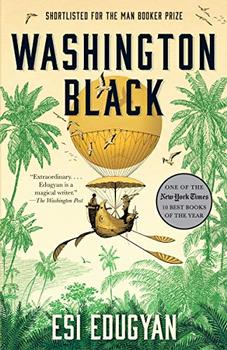Summary | Excerpt | Reviews | Beyond the book | Read-Alikes | Genres & Themes | Author Bio

Harrowing. Gorgeous. Epic. Grace, Paul Lynch's coming of age novel about a young woman, is set during the catastrophic Irish potato famine.
Fourteen-year old Grace is cast out by her mother, told only, "You are the strong one now." Grace doesn't understand why she must leave, only that she must. But this is no punishment—her mother is trying to save her. Her hair cut short, her clothes swapped with her absent father's, Grace begins her journey from the poverty of Donegal's Black Mountain to find work and bring money home.
The odds are stacked against her. Grace has no education, no one to guide her. Only after enduring the Great Hunger (see Beyond the Book), and almost dying, can she be reborn, stronger, ready to make her own choices.
Grace finds a job working with cattle, for which she is unqualified but makes the most of. When the herd is stolen, she joins Bart, a bandit. They roam around Ireland, discovering that the famine has altered the country — and themselves — irrevocably. Hunger is everywhere. "Though you can learn to ignore hunger, not give it a single thought, hunger is always thinking of you."
Grace falls gravely ill and is left for dead. She is brought back from the brink, but has lost her ability to speak. All she can do now is observe, a silent witness to her country's distress. Work restores her dignity and, combined with the patience of a good man, enables her final transformation and spiritual regeneration.
Grace picks up the story from Lynch's previous novel Red Sky in Morning, when Grace's father, accused of murder, escapes to America, leaving his wife and children to fend for themselves. But it's not necessary to read that book to understand how dire poverty and impending famine offer Grace's mother little choice but to set her daughter on her own so that she might try to fend for herself, the disguise as a boy her only advantage over being born female. It is the new generation that must be strong for Ireland now.
Grace's journey is thrilling enough but Lynch's poetic and cinematic prose endows her with a voice that should make her a classic of Irish literature. "If her finger were a blade it would be sharp and pointed as her hate, she thinks. The things I could do with it." Lynch also has a special ability to write about landscape as though it were another character. "A sky of old cloth and the sun stained upon it." The setting of the relentless Great Hunger, its hovels and graveyards, reveals Grace's strength again and again. Lynch's poignant descriptions of many human details — sleeping rough, the exhaustion from hard physical labor, the elation of eating a square meal, take us deep into Grace's struggles, and what the country must have endured.
Not just another historical novel, Grace is one of the most memorable and unique books I've read. Its themes of despair, responsibility, guilt and hope stayed with me long after I'd finished it. The book is a vivid portrait of a person's struggle against adversity, and of Ireland's terrible famine, made all the worse because its effects could have been mitigated if those of means had wanted it. Such suffering still exists in parts of the world today, and Grace reminds us that those who can help, should. We must not turn away.
![]() This review was originally published in The BookBrowse Review in August 2017, and has been updated for the
July 2018 edition.
Click here to go to this issue.
This review was originally published in The BookBrowse Review in August 2017, and has been updated for the
July 2018 edition.
Click here to go to this issue.

If you liked Grace, try these:

by Carys Davies
Published 2025
A stunning, exquisite novel from an award-winning writer about a minister dispatched to a remote island off of Scotland to "clear" the last remaining inhabitant, who has no intention of leaving—an unforgettable tale of resilience, change, and hope.

by Esi Edugyan
Published 2019
A dazzling new novel about a boy who rises from the ashes of slavery to become a free man of the world.
Your guide toexceptional books
BookBrowse seeks out and recommends the best in contemporary fiction and nonfiction—books that not only engage and entertain but also deepen our understanding of ourselves and the world around us.